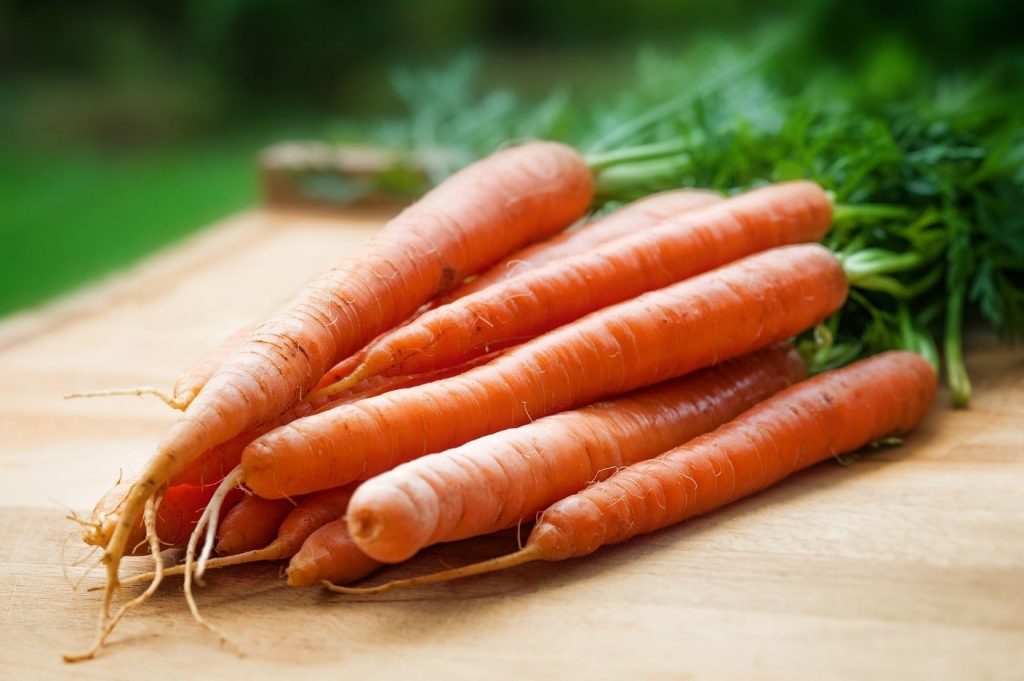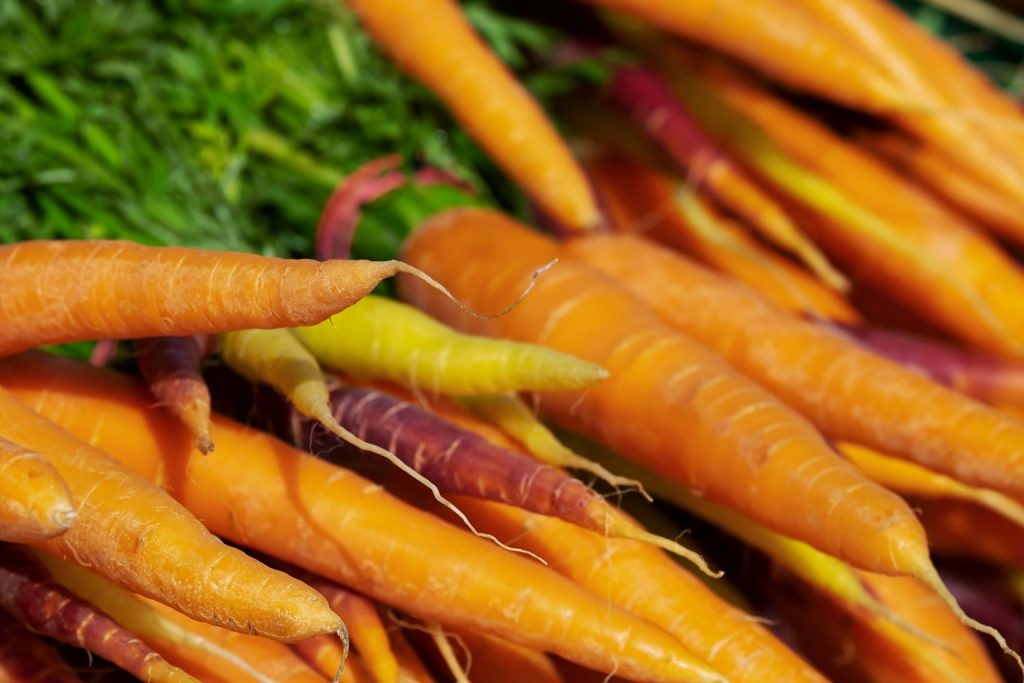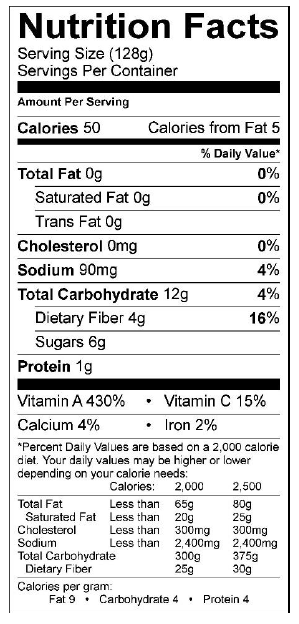Did you know?
- Carrots were the first vegetable to be commercially canned.
- The Guinness World record for the heaviest carrot weighed in at 20 lb, and the record for the longest carrot is over 19 feet!
- Some carrot varieties can remain in the soil all winter–a plus in Colorado where freezing temperatures can come early.

Carrots (Daucus carota) are root vegetables in the parsley family with universal appeal as both a ‘stand-alone’ snack and an essential ingredient in salads, soups, and stews. Originating in Iran and Afghanistan, carrots were originally many colors, ranging from red and purple to black. The iconic orange color and sweet taste that most people prefer in carrots today did not appear until the 17th century in the Netherlands, a product of cross breeding by botanists.
Carrots are primarily consumed fresh and are one of the top economically important vegetable crops in the world. An upsurge in carrot popularity came after 1986 with the introduction of ‘baby-cut’ carrots—made from larger carrots bred for their sweetness and evenness of color all the way through the root.
Colorado Production

Our Rocky Mountain climate is well suited for carrots to reach full ripening, color, and flavor potential. The temperature variance of warm days followed by cool nights enables the production of natural sugars resulting in sweeter carrots. Colorado carrots are typically available August through November.
Selection, Handling, and Storage
Choose well-shaped, smooth, firm, crisp carrots with deep color and fresh, green tops. Avoid soft, split, or wilted carrots.
When stored properly, carrots will keep well in the refrigerator. Wait to wash carrots from the store or market until ready to serve, as residual water from washing may promote bacterial growth and speed up spoilage. When harvesting carrots from the garden, wash off dirt, then dry completely before storage. Storage in a plastic bag will help limit moisture loss.
Peel carrots or clean them well with a firm scrub brush under lukewarm running water to remove surface contamination.
Preserving Carrots
Freezing: Leave carrots whole if small, or cut larger carrots 1/4 inch thick. Blanch whole carrots 6 minutes, sliced carrots 3 minutes. Cool and drain, dry pack with headspace. Thawed carrots are delicious in soups and stews.
Drying: Use only crisp, tender carrots. Wash, cut off top and bottom of carrot, and peel. Cut into slices or strips 1/8 inch thick. Blanch 4 minutes, cool and drain. Dry 6-10 hours in a single layer or until no moisture remains on carrots. Great as a snack or added to cooked meals!
Easy Roasted Carrots
- 12 medium carrots
- 3 T olive oil
- Salt and Pepper, to taste
- 2 T fresh seasonal herbs, minced
Preheat oven to 400⁰ F. Leave carrots whole or cut in half lengthwise. Slice carrots diagonally 1 ½ inches thick. Toss with olive oil, and salt and pepper. Transfer to sheet pan and roast 20 minutes or until brown and tender. Toss with herbs and serve hot.
Nutrition

In addition to being sweet and delicious, carrots are incredibly nutritious. Carrots are fat free, low in sodium, cholesterol-free, a good source of vitamin C, and low in calories – a one cup serving has only 50 calories! Carrots are also one of the richest sources of vitamin A, with one cup of sliced carrots delivering more than the recommended daily amount. Carrots are also rich in bioactive compounds like carotenoids and dietary fiber.
The bright orange pigmentation in carrots is due to β-carotene, the provitamin form of vitamin A. In selecting for brighter color, the vitamin A content of common carrot varieties has increased over time. When ingested, β-carotene is converted to the active form of vitamin A, which is then bioavailable. Vitamin A is important for immune system functioning and healthy cell growth.
Preservation
Carrots are very versatile and can be successfully preserved by canning, freezing, or drying. Be sure to educate yourself on safe preservation methods, and remember that there are NO safe boiling water processing methods for carrots–they must be processed in a pressure canner!


